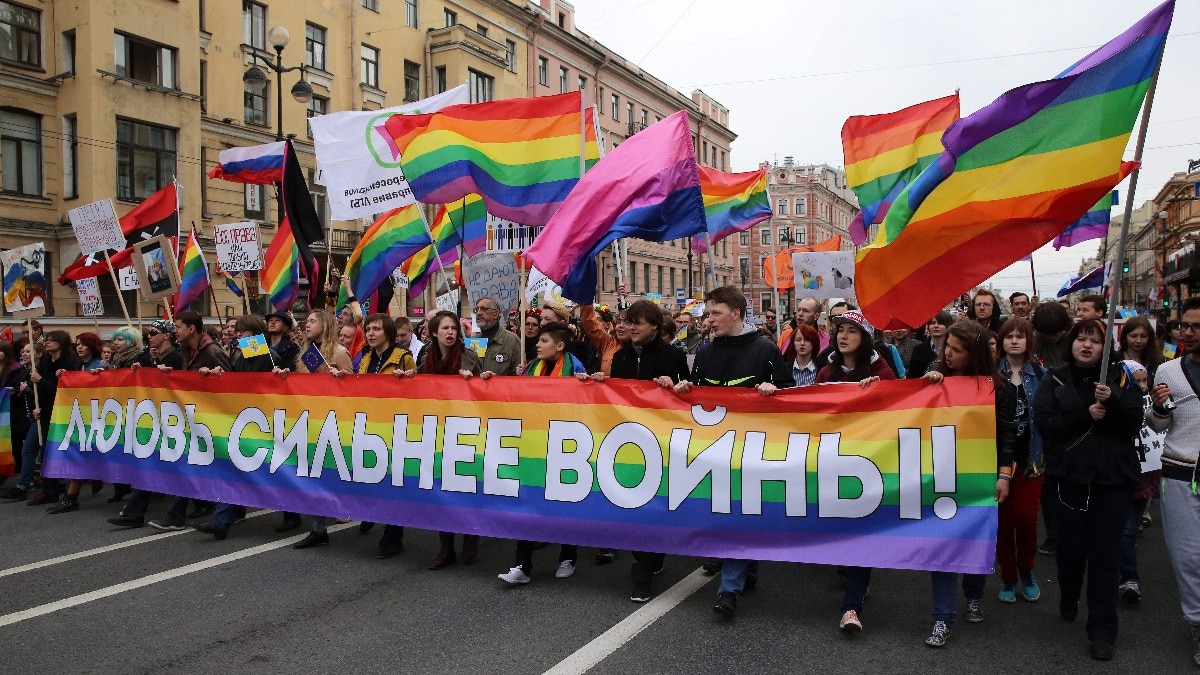2024-12-22 09:50:00
Is it the worst time to be gay in Russia? How unsafe is the LGBTQIA+ community under President Vladimir Putin? How has the political homophobia in Russia unfolded? And what are its anti-LGBT laws?
State repression of the LGBT community
As part of what it calls the crackdown against ‘LGBT propaganda’, the Russian police raided several nightclubs and bars in Moscow early on November 29th. Clubgoers were ordered to lie down on the floor, phones, laptops and cameras were confiscated, and people were allowed to leave only after their documents had been checked. Moscow police also detained the 48 year old head of the “Men Travel” travel agency, on suspicions that he was preparing a trip for – what they termed – “supporters of non-traditional sexual values” to Egypt over the Russian New Year holiday.
It is not surprising that Russia was ranked as the most dangerous place for LGBTQ people in Europe in 2024 by RainbowMap. But this was not always the case.
Changing state position on rights of the community
Russia witnessed what is called a Renaissance in the queer scene after the fall of the Soviet Union. The country decriminalised homosexuality in 1993, and transgender Russians have been allowed to change their legal gender on document since 1997.
However, the Russian state, society, and culture continues to remain homophobic. And the Russian state is to be blamed for this. At the international level, Russia wants to appeal to the global conservative movement, while using domestic conservatism to build a repressive machine at home.
Russia uses political homophobia as a state strategy to create a new sense of state identity by portraying homosexuals as ‘foreign-agents’. By 2012, the repressive regime was in full force. Closely related to existing regional laws, in 2013, the Russian duma in Moscow passed a new law banning the “propaganda of non-traditional sexual relationships” to minors. Defining propaganda loosely, to include distribution of information which may make non-tradition sexual relations attractive, or lead to interest in the area, the Russian state almost has a free reign in repressing LGBTQ rights, with no recourse for Russian citizens.
Russia has also used other laws including the foreign-agents law to penalise organisations associated with the pride movement in the past. In 2013, the Russian government fined ‘Side by Side’, Russia’s first LGBT film festival, 400,000 roubles for failing to register in Russia as a ‘foreign agent’, by an illegal retrospective application of the 2012 foreign-agents law to the organisation. It eventually banned Side by Side’s activities in Russia, forcing the team to branch out to Europe.
Political homophobia: increasingly regressive laws in Russia
Numerous instances of hate violence against LGBT advocates and instances of violence at LGBT pride events in St. Petersburg and Moscow, as well as elsewhere, have been recorded. In 2020, the Russian Constitution was amended to state that marriage is “the union of a man and a woman.”
The next three years marked the most repressive period for LGBT rights in the country. By the fall of 2021, LGBTQ organisations, including Coming Out, Revers, and Mayak had all been labelled “foreign agents.” In late 2022, a bill extending the ban on “LGBT propaganda” to all ages, and in July 2023, a law banned changing gender markers in documents, making gender-affirming care impossible. It also prevents trans people from adopting or taking guardianship over children. Finally, on November 30, 2023, Russia’s Supreme Court designated the “international public LGBT movement” as “extremist.”
Under Russian criminal law, participating in or supporting an extremist organisation is punishable by up to 12 years in prison. The new laws effectively ban all LGBTQ+ expression in public or in the media.
Russia’s conservatism in the global context
However, there are interesting reports that suggest that Russia’s policies have been shaped by lobbying from the U.S.-based umbrella for conservative organisations – the World Congress for Families. This is part of a larger network of Western conservatives, Russian oligarchs, and Russian Orthodox clergy, which is increasingly engaged in ‘anti-gender diplomacy’.
To this, add Russia’s portrayal of itself as the protector of ‘traditional Russian values’, especially in opposition to decadent western values, and you have the perfect recipe for popularly accepted queer-phobia and widespread anti-LGBTQ oppression. To illustrate, the percentage of Russians opposing same-sex relationships rose from 60 percent in 2013 to 69 percent in 2021.
Apart from the state, the Russian Orthodox Church, as well as the entrenched queer-phobia in the security services – the enforcers of the state’s repressive laws, only makes matters worse.
The insecurity, intolerance, and repression faced by the Russian queer population is alarming, and needs immediate international attention.
Tune In
russia,russia anti gay law,russian,russia elton john,gay russia,russian police,lgbt russia,russia lgbtq,gay in russia,young and gay in russia,life in russia,russia gay rights,gay laws in russia,russia lgbt rights,legbt rights russia,lgbt rights in russia,russia news today,russia news hindi,russia news latest,russia news update,russian politics,russia lgbt,russia queer,russia pride,russia anti lgbtq law,gender change russia
Source link
4 total views , 1 views today
